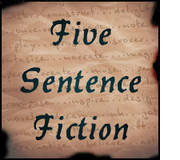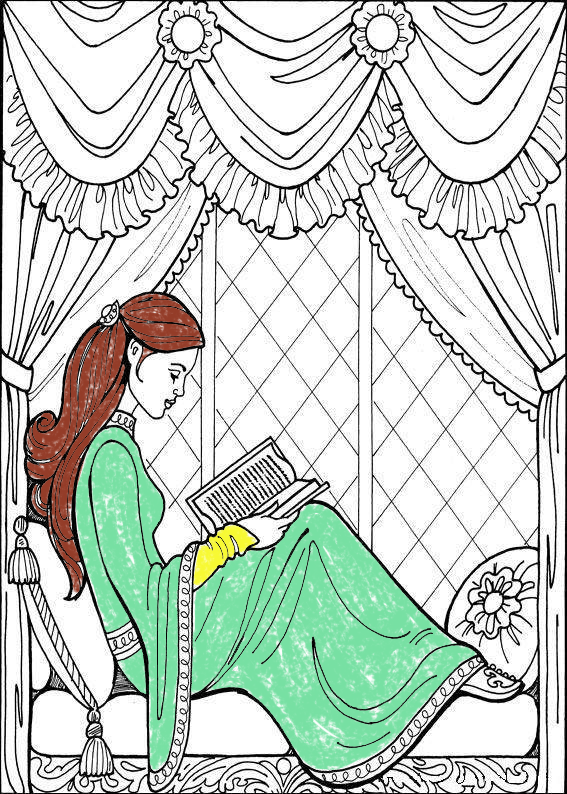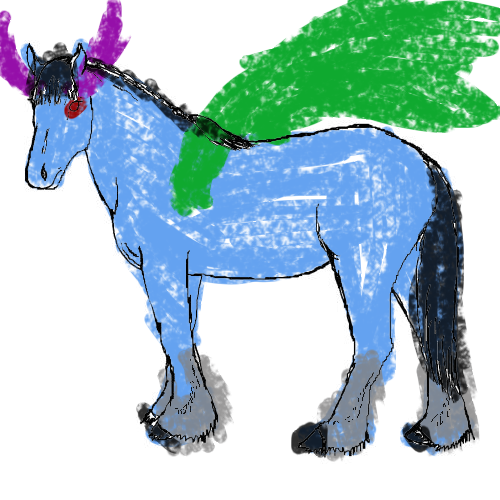by Mayumi-H | Oct 17, 2012 | Short Stories
 “DETOUR” was the prompt for this week’s Five Sentence Fiction challenge, from Lillie McFerrin. We don’t have to use the word itself, just write a five sentence story using that word as inspiration. (I’m cheating a bit this week, as I originally wrote this one for another prompt. But, I think it fits better, here.)
“DETOUR” was the prompt for this week’s Five Sentence Fiction challenge, from Lillie McFerrin. We don’t have to use the word itself, just write a five sentence story using that word as inspiration. (I’m cheating a bit this week, as I originally wrote this one for another prompt. But, I think it fits better, here.)
This one is for all the people out there who don’t always go where they want to go, but get taken to where – and with whom – they need to be.
“In a Word”
There had been other men, of course, before him: the deliriously brilliant swashbuckler who’d spoken of strange and ancient mysteries; the handsome, charming defender who’d nearly swept her off her feet with flattering want; even the wise but wicked gentleman who’d wondered with her what could have been.
He wasn’t as brilliant, handsome, or as wise as them, nor delirious, charming, nor wicked.
But, he was strong and warm when they held each other, tenderly passionate when they kissed, and he filled her with such joy when he made her laugh. And, sometimes, when she least expected, he could be stately, like a gentleman, and as courageous as any knight, and even as exciting as a daredevil…in his own sometimes silly, sweet way.
He was, simply and in a word, her husband.
Yes, yes, I know: I’m a sap. But, I write what I know, which makes me a happy sap.
What DETOUR did your characters take, with this prompt?
by Mayumi-H | Sep 8, 2012 | Process
Many of us have already been told it’s better to keep our prose as simple as possible: clear is better than clever, as they say. For the most part, I agree. And I’ve enjoyed my share of flowery prose! One part of a story that’s created something of a dividing line between me and other authors, though, is just that: the dividing line. To put it more broadly, the use of transitions.
Keeping in mind that adage of clearer being better than clever, I don’t see much point in dwelling on long, rambling transition sequences. But, I also think the dividing line is a bit of a cheat. Not only does that divider line (or space block, or asterisks, or whatever) take the reader out of the moment, it breaks the flow of the narrative. Sometimes, this doesn’t matter so much; if you’re changing perspective, for example, you want to separate the narrative flow somehow. But for a subtle scene or time change, I prefer to keep reading, rather than having my eye stutter over a visual division.
The rest of the afternoon passed quickly: the relatively uneventful walk back to the city centre, with St. Stephens and the train station, and a bit of aimless traipsing around the shops while the hotel prepared their late check-in room. Sally led them into a book shop where they stopped to listen to a charming children’s reading circle; Larry dallied in a retro art store with a selection of colorful and odd-looking international movie posters.
The quaintness was charming, of course, and they chatted along the way about both realistic potentialities and dreamy might-bes. But, through it all, there was still something missing, something hovering almost expectantly in the air between them: when they’d stop at a corner, or pause in conversation, or share a quiet look over tea and biscuits in a coffee shop.
Now, the above doesn’t really move the plot along any; all it does is take the reader from one scene to another. An editor might tell me to cut it. Simply removing these paragraphs between the two scenes makes my brain stutter, though, the same as putting in one of those divider lines would do. So, I’ve indulged myself with this transition.
What are your feelings on transitions in prose?
by Mayumi-H | Sep 5, 2012 | Short Stories
 “FACES” was the prompt for this week’s Five Sentence Fiction challenge, from Lillie McFerrin’s blog. We don’t have to use the word itself, just write five sentences with that word as inspiration.
“FACES” was the prompt for this week’s Five Sentence Fiction challenge, from Lillie McFerrin’s blog. We don’t have to use the word itself, just write five sentences with that word as inspiration.
My original entry was much more based within a fandom, much more referential and trying to be clever. So is this one…though, I prefer it over the original.
For all those parents who think they have any kind of control over what their children do….
“No Girls Allowed”
Larry’s only criterion was that he wanted a boy; he even had a name in mind: Thor, after the Norse god of thunder, a childhood heroic fantasy figure (though he’d accept Loki, if the personality fit).
Not to say he didn’t love his girls (and, here, he included Sally, even if he’d never call his feisty, gorgeous wife a “girl” to her face) – he loved them more than anything, in fact – but being the only man in a house with three women took its toll; there were only so many evenings he could spend with Elton, shooting 2D zombies, or with Tom, feigning interest in a single man’s problems, or with Craig, faking his way through a conversation of last night’s football match. He wanted to connect with a male who’d understand him, who’d let him be himself; he didn’t think that was too much to ask.
So, when he’d arrived home again after a two-day stint working the dealers’ room at another convention, and his girls had met him at the door with too-wide, cagy grins, asking him to “keep an open mind, don’t get upset, Daddy, please,” he’d known something was amiss, and was ready to give them an earful.
But, then, they’d pulled out that wobbly-legged, round-faced, chocolate-coloured bundle of fluff, that looked up at him with those dark, trusting eyes and that snub, twitching nose, and that happy, proud smile that promised loyalty and interest no matter how mundane, married, or how much of a geek he was…and all he could say around his creeping smile was, “I guess we can call her Sif.”
![256px-ChocolateLabPup1 By Ltshears (Own work) [CC-BY-SA-3.0 (http://creativecommons.org/licenses/by-sa/3.0) or GFDL (http://www.gnu.org/copyleft/fdl.html)], via Wikimedia Commons](https://mayumi.amorphous.press/wp-content/uploads/sites/4/2012/09/256px-chocolatelabpup1.jpg?w=227)
Good old Sif.
As much as I enjoy writing for a lot of these prompt challenges…I really have to stop jumping on them so readily, and concentrate on my own work-in-progress novel. I love Ross and Amber too much to let them simply simmer, while I play in other people’s ponds.
That said, what FACES do you like examining?
by Mayumi-H | Aug 18, 2012 | Process, Short Stories
 Usually, I reserve my Saturday post space for discussion of the process of writing. But, this week, I had to try my hand at Lillie McFerrin’s Five Sentence Fiction, since I saw the prompt was NIGHT (2012 August 16).
Usually, I reserve my Saturday post space for discussion of the process of writing. But, this week, I had to try my hand at Lillie McFerrin’s Five Sentence Fiction, since I saw the prompt was NIGHT (2012 August 16).
Five sentences is a tricky target to tell a story. It would be relatively easy for me to craft a piece that just used semicolons anywhere there could be a period…but that’s not really how the semicolon should work. (“Don’t think of a semicolon as a strong comma,” says editor Theresa Stevens. “Think of it as a weak period.”) Thus, I wanted to use the semicolon sparingly, yet still create something fresh, and still hold to the rule of five sentences.
This one is quite flirty, though I should think not quite NSFW-worthy. As always, though, I leave you to be the judge.
“Strangers”
He’d never been propositioned in a club before (he’d never been in a club before), but the reward for such daring…! She was as he’d never known: wild, wanton, full of eager lust; the kisses started the minute they’d left the pounding, primal rhythms behind, only to be reprised -more rhythmic, more primal- not long after, in their sparse Whitechapel hotel room.
The bells tolled three before she was finally satisfied, and, while exhausting, it was wonderful.
With morning, propriety returned, as he’d known it must. But, he’d always remember playing strangers in the night, with his bold, brilliant wife.

Ars Erotica. One of my favorites of the bunch.
So, to sort of stay on topic, what are your feelings on the use of semicolons in prose?
by Mayumi-H | Aug 15, 2012 | Short Stories

So, it’s week 54 for Julia’s 100-Word Challenge for Grown-Ups, and we’ve got a relatively simple prompt:
LEGACY. Julia says, You don’t have to … include the word but I would like 100 words on what it says to you.
Legacy always conjures up the idea and ramifications of family, for me. I’m sure others can sympathize…and you’ll likely see more of this sort of legacy, this week. As for me, I’m venturing among the Nightingales, again:
“Pretty Princess”

Katie’s Princess
“Miss Trish asked what we’re to be when we grow up,” Billie said, smearing blue across her colouring book Clydesdale.
Sally smiled. “What did you say?”
“Starship captain,” Billie answered. She grabbed a green; the horse became a pegasus. “Or, dinosaur zookeeper.”
“That’s my girl,” Larry quipped.
Sally chuckled, turning to her quieter daughter. “And you?”
Katie dabbed red over her picture princess’s hair, murmuring, “Pretty.”
Sally and Larry stopped, frowning.
Billie gave her pegasus purple horns, declaring, “You’ll be pretty, just like Mummy! But, I have to do more. Because I look like Daddy.”
Larry sneered. “Thanks very much!”

Billie’s Horse
There are brutal truths of society that children understand even at an early age; the importance of beauty is one of them (I know I learned it very young). But I didn’t want to dwell too much on such a ponderous topic, so I figured outspoken little Billie could offer a slightly pragmatic turnaround. Hope you enjoy!
What legacy did you examine for this week?
 “DETOUR” was the prompt for this week’s Five Sentence Fiction challenge, from Lillie McFerrin. We don’t have to use the word itself, just write a five sentence story using that word as inspiration. (I’m cheating a bit this week, as I originally wrote this one for another prompt. But, I think it fits better, here.)
“DETOUR” was the prompt for this week’s Five Sentence Fiction challenge, from Lillie McFerrin. We don’t have to use the word itself, just write a five sentence story using that word as inspiration. (I’m cheating a bit this week, as I originally wrote this one for another prompt. But, I think it fits better, here.)
![256px-ChocolateLabPup1 By Ltshears (Own work) [CC-BY-SA-3.0 (http://creativecommons.org/licenses/by-sa/3.0) or GFDL (http://www.gnu.org/copyleft/fdl.html)], via Wikimedia Commons](https://mayumi.amorphous.press/wp-content/uploads/sites/4/2012/09/256px-chocolatelabpup1.jpg?w=227)




Recent Comments